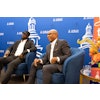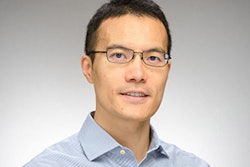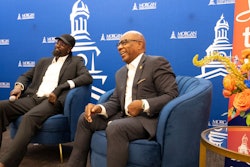Boosting Minority Ranks in the U.S. Foreign Service
A State Department-Howard University program aimed at training minorities for diplomatic duties overseas bears fruit.
By Jamal Watson
Several years ago, while enrolled at Howard University, Dionandrea Shorts was well on her way to becoming an engineer. Her career ambitions took a drastic turn, however, after she enrolled in an international relations course at the university and realized that she wanted to live and work abroad. Next March, the 24-year-old Denver native will do just that as she heads to Lima, Peru, where she will work as a Foreign Service Officer.
Shorts is a Rangel Fellow, chosen for a highly selective program started in 2002 by U.S. Rep. Charles B. Rangel, D-N.Y., to encourage more minorities to enter the U.S. Foreign Service.
Each year, dozens of graduating minority seniors vie for a coveted spot in the graduate program, administered by the Ralph J. Bunche International Affairs Center on Howard’s Washington, D.C., campus and overseen by the U.S. State Department. Rangel Fellows each receive tuition grants of $28,000 a year toward graduate studies.
In addition, they travel overseas, intern at U.S. embassies and in Congress and receive mentoring specifically designed to prepare them for careers in the Foreign Service.
All Rangel Fellows must meet rigorous State Department entry requirements, which include passing a detailed background check.















